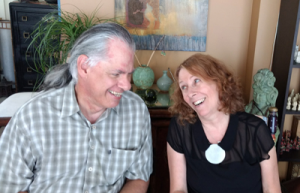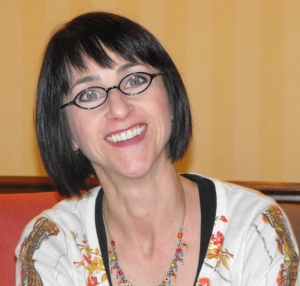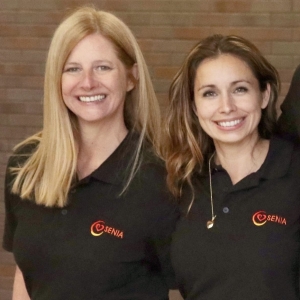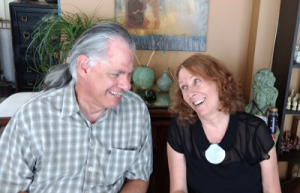Pre Conference Speakers (Full Day Workshops)
Creating the Learning Support Classroom of Tomorrow
This workshop will introduce a new framework for developing individual learning support programs that are highly personalized, engaging, effective, and centered around increasing student agency.
After unpacking the framework, participants will use their unique context(s) to create and/or improve their own learning support classrooms. In addition to improving their learning support class, participants are invited to join a community that will continue to support each other in the future.
The MARIO Framework is primarily designed for middle and high school learning support teachers to provide a customizable structure for improving the overall effectiveness of dedicated learning support classes. Unlike many educational platforms, the MARIO Framework is completely free and run by fellow teachers in the field. In addition to being an effective approach to helping students reach their potential through personalized instruction, the framework’s modular design allows teachers to increase their impact in multiple ways.
Teachers can instantly access quality resources and strategies, share what works for them with others, and leverage an opportunity to improve already existing content.
Bio
Philip Bowman is in his ninth year at International School Bangkok and has been a learning support teacher for over thirteen years. His career in special education began shortly after being diagnosed as an adult with ADHD. Drawing on his personal experiences with ADHD and varied background in science, research, liberal arts, special education, motivation, mindfulness, and video games, he has created an empathetic and playful approach to learning support that focuses on sustainable results through personalized learning. Philip believes that, in addition to in-class support, all students with exceptionalities should have access to effective learning support classes that target overall learning and life-long success. He recently founded the MARIO Framework to help further this mission by providing a shared space for learning support teachers to build and/or improve their own ideal classroom.
Practical Strategies for Reducing Anxiety and Disruptive Behavior in the Classroom
The National Institutes of Health (NIH) in the United States reports that one in four thirteen-eighteen-year-olds has had an anxiety disorder in their lifetime. Without intervention, these children are at risk for poor performance, diminished learning, and social/behavior problems in school. Understanding the role anxiety plays in a student’s behavior is crucial and using preventive strategies are key to successful intervention. Effective behavior plans for these students must avoid the reward and punishment-based consequences from traditional behavior plans and focus instead on the use of preventive strategies and on explicitly teaching coping skills, self-monitoring, and alternative responses.
As a result of this workshop participants will be able to easily implement preventive tools, strategies, and interventions for reducing anxiety, increasing self-regulation, executive functioning, and self-monitoring.
Bio
Jessica Minahan, MEd, BCBA, is a licensed and board certified behavior analyst, special educator, and consultant to school’s internationally. Jessica has over seventeen years of experience supporting students who exhibit challenging behavior in public school systems. She is a blogger on The Huffington Post, as well as the author of The Behavior Code: A Practical Guide to Understanding and Teaching the Most Challenging Students, with Nancy Rappaport (Harvard Education Press, 2012) and author of The Behavior Code Companion: Strategies, Tools, and Interventions for Supporting Students with Anxiety-Related or Oppositional Behaviors (Harvard Education Press, 2014).
Bonnie Singer
Brain Frames
This training is for grade K-12 special education or general education teachers of any subject area who want effective tools for teaching students to actively organize their language and thinking in academic tasks. Brain Frames are a set of graphics that organize, but they aren’t traditional graphic organizers. This workshop introduces the six Brain Frames and provides participants with hands-on practice in using each of them for a variety of instructional purposes.
Forget about pre-made handouts — a blank piece of paper, a pencil, and the right strategy will do the job. By drawing their own Brain Frames from scratch, teachers and students can show what’s in their brains by constructing a visual “frame” so they can see, reflect on, and share what they know and understand. Thus, they can visually capture their ideas graphically without being constrained or frustrated by someone else’s pre-made organizer.
Brain Frames are visual-spatial displays of the patterns underlying basic things we do with language every day.
All day, every day, from a very young age, we:
- tell what we know
- sequence ideas
- show contrasts
- identify causes
- recognize effects
- categorize
- show relationships between concepts
Awareness of these patterns is largely unconscious to most people but directly influences comprehension, and academic success.
Brain Frames give students organizing frameworks needed for academic success. They are a manageable set of graphics that will help them “do school.” They can use them in any subject and any grade level. Similarly, Brain Frames give teachers a manageable set of effective graphics that they can use across their curriculum.
Bio
Bonnie Singer, Ph.D., CCC-SLP is the Founder/CEO of Architects For Learning, where she trains educators, consults with schools world-wide and directs a staff in the Boston area that provides academic intervention, assessment, and consultation services.
In partnership with Dr. Anthony Bashir, she developed EmPOWER™, a method for teaching expository writing, and Brain Frames®, graphic scaffolds for language, literacy, teaching, and learning. Her primary research and publications focus on the relationship between spoken and written language, cognition, spatial processing, and self-regulated learning.
Executive Functioning: A School-based Tool Box to Support Student Growth
SENIA is looking for individuals to help build a collaborative school-wide (K-12) tool box to support Executive Functioning skills.
This workshop, facilitated by SENIA Board members, Lori Boll and Priscilla Leighton, takes our understanding of Executive Functioning skills to the next level.
By the end of the day, participants walk away with the following:
- Presentations you can use to teach parents and staff about EF
- Strategies to support students with EF challenges
- An IEP goal bank
- A list of EF resources
In addition, participants will collaboratively build a series of lesson plans to introduce Executive Functioning skills to all students. This collection of lesson plans will benefits all SENIA members.
Participants in this workshop need a basic understanding of Executive Functioning and come ready to work!
Bio
Lori Boll
Lori Boll is an experienced Special Education leader with a personal connection to individuals with disabilities.
In 2003, Lori’s son Braden was diagnosed with autism spectrum disorder. This milestone event changed her focus from teaching elementary students to advocating for all children and their education.
In Shanghai, China Lori worked as a program director for a school focused on students with special needs and went on to co-found the first inclusive school in the city. Currently, Lori is running the new Intensive Needs Program which opened up at International School Bangkok this school year.
Lori has two graduate degrees; one in Reading Education and the other in Special Education and has been teaching for over twenty years in international schools, including American International School Riyadh, Jakarta International School, and Concordia International School, as well as in the United States in California and Colorado.
Priscilla Leighton
A special education leader who advocates for inclusion and putting kids first. Her adventure in the world of special education began in California, where she worked as a Resource Specialist for 7 years. She earned a Master’s Degree in Special Education before moving overseas in
2013.
Now she is the Student Services Coordinator for Middle and High School at Brent International School Manila.
As local chapter liaison for SENIA, Priscilla supports the local chapters on their own inclusive journey. She also serves on the board of the SENIA local chapter in Manila and personally experiences the benefits of being a part of a local chapter.
The keys to Priscilla‘s heart are held by her husband, two daughters, and a very large poodle. She’s always looking for a chance to whisk them away and explore the world (preferably
underwater).
Lori Boll and Priscilla Leighton
Norm Kunc and Emma Van der Klift
Being Realistic Isn’t Realistic: The Role of Innovation and Creativity in Inclusive Education
A vital element of a successful inclusive education program is the ability of educators, students, and family members to be innovative and creative in developing ways to support students with disabilities in regular classes. Unfortunately, many of us doubt our ability to be innovative and consequently can miss some of the joy and excitement in coming up with creative workable solutions.
In this full-day workshop, Norman Kunc and Emma Van der Klift take the mystery out of innovation and through stories, examples and personal experience, show how all of us have the ability to step beyond conventional solutions to find and develop unique (and even low-tech!) ways to support students. They will also highlight some of the strategies they have developed, both as disabled students and now as adults, to work around the challenges they face.
Bio
Born with cerebral palsy, Norman attended a segregated school for children with physical disabilities; then, at the age 13, argued his way into a regular school and went on to complete a Master of Science degree in Family Therapy.
Recently diagnosed as Autistic, Emma has embraced the diagnosis with a sense of relief, recognition and confirmation. She is certified in both mediation and negotiation and holds a Master’s degree in Conflict Analysis and Management.
Going Beyond the Behavior ABCs
While primary school teachers may understand the basic ABCs (Antecedent>Behavior>Consequence) of analyzing a child’s behavior, there are still gaps in understanding regarding what to do about a student’s behavior both in the moment, and long-term. Teachers also struggle with applying the theoretical understanding of how to manage problem behavior to the actual students in their classrooms.
This workshop will review the functions of a students’ behavior and will then delve intospecific case studies relevant to participants’ experience and backgrounds within International Schools. Participants will dive into students’ needs, behaviors, and previous interventions to create support plans that address proactive strategies and interventions, as well as practical tools to help in daily classroom life when behaviors arise.
As a result of this workshop, participants will be able to create effective student support plans to address positive behaviors with students in their classrooms and across their schools. This workshop will focus on students aged 4 – 12.
Bio
Katie Holloran, MA, Ed, BCBA, is a board certified behavior analyst, special educator, and consultant to schools and families internationally. Katie has over twenty years of experience supporting students who exhibit challenging behavior in US schools – first as a classroom and special education teacher, and for the past 13 years as a behavior specialist for public schools across the Washington, DC area. Additionally, as the Lead Behavior Analyst and Clinical Director of International Diagnostic Solutions, Katie has supported teachers in the areas of Autism support as well as behavior planning and intervention in International Schools across the globe for the past 6 years.








